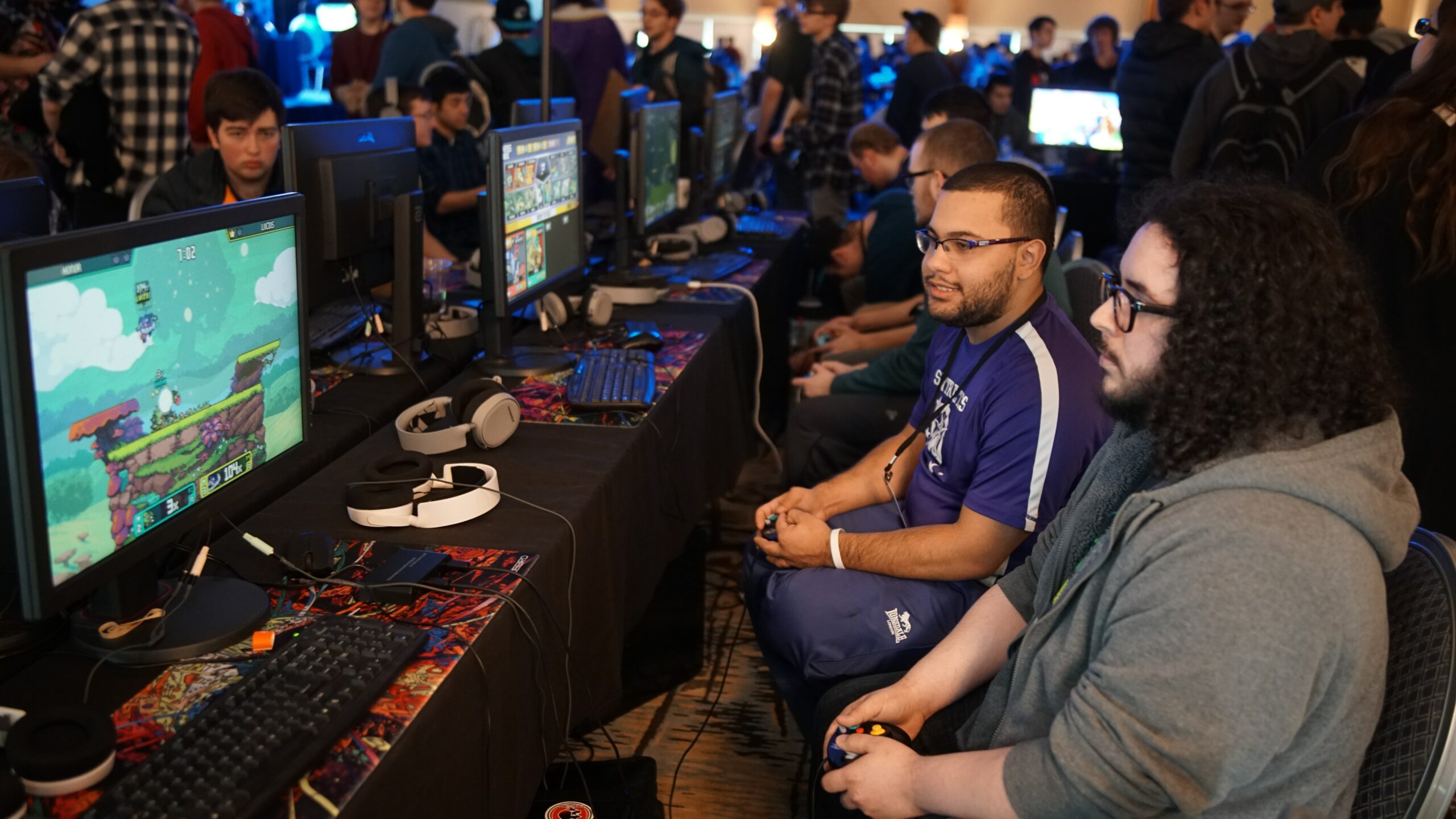Esports are a form of competitive sports using video games. They are organised, typically by businesses, either as individual matches or as leagues. Some of the most popular esports games include Dota 2, League of Legends, Overwatch, and Counter-Strike: Global Offensive. Esports has been growing in popularity over the past few years, with more and more people tuning in to watch matches.
A brief history of esports
The history of esports is largely intertwined with the history of video games and competitive gaming. Esports (a portmanteau of “electronic sports”) is a form of sport competition using video games. Most commonly, esports takes the form of organized, multiplayer video game competitions, particularly between professional players. These competitions can take place in physical venues, online, or even as televised events.
Early examples of competitive gaming include chess and bridge tournaments which began in the 19th century. The first video game competition took place in October 1972 at Stanford University for the game Spacewar. Rolling Stone magazine reported on this event and dubbed it “(the) first known videogame tournament”. Atari later held Space Invaders tournaments in 1980 that featured more than 10,000 participants in the United States; by 1983 over 50 Space Invaders tournaments were being held across America with over 20,000 participants attending. One such early event was hosted by Walter Day’s Twin Galaxies arcade in Ottumwa, Iowa; David Nelson makes a case that Pac-Man should be considered an early esports title due to the large number of arcade cabinets set up to play it across North America by 1982.

The 1980s and 1990s saw a rapid rise in popularity for both arcade games and console games due to their easy accessibility at home and in arcades. This resulted in a boom for both genres which carried on into the new millennium. The late 1990s also saw the rise of Real Time Strategy (RTS) and Multiplayer Online Battle Arena (MOBA) games which became extremely popular amongst hardcore gamers; these genres have seen continued popularity within esports with Blizzard Entertainment’s StarCraft franchise being a prime example — one that has maintained a strong fan base 15 years after its release on PC.
The rise of esports
The global esports market is currently worth around $696 million, and is expected to grow to $1.5 billion by 2020. This rapid growth is being driven by increasing investment from both within and outside the gaming industry, as well as by the rapidly increasing popularity of esports among young people.
There are currently around 2.2 billion gamers worldwide, and esports are becoming increasingly popular with both casual and hardcore gamers. In fact, a recent study found that 39% of millennials say they are more interested in following esports than traditional sports.
One of the key reasons for the growing popularity of esports is the increasing professionalism of the scene. There are now plenty of opportunities for gamers to make a living from playing games, with the best players in the world earning millions of dollars in prize money and sponsorship deals.
This professionalization of esports has led to the rise of dedicated esports organizations, which support and promote professional gamers. These organizations often have teams that compete in various tournaments around the world, with some of the biggest events attracting tens of thousands of spectators.
The growth of esports is also being driven by changes in how people consume entertainment. With more and more people watching content online, it’s no surprise that esports are becoming increasingly popular. In fact, Twitch, one of the most popular platforms for watching gaming content, now has more viewers than CNN.
As well as being entertaining to watch, esports also offer plenty of opportunities for brands to reach a young and engaged audience. For example, many brands sponsor individual players or teams, while others have started creating their own eSports tournaments.
Can you bet on esports
Esports betting is a growing industry with immense potential. In 2018, the global esports betting market was valued at $865 million and is expected to grow to $1.79 billion by 2022, according to Statista. While there are many countries where esports betting is currently illegal, there are still ways to bet on esports. Let’s explore how you can bet on esports.
The betting market for esports
With the popularity of esports on the rise, it’s no surprise that the betting market for esports is also growing. But can you actually bet on esports?
The answer is yes! You can bet on esports using real money or virtual currency. There are a few different ways to do this, and the most popular way is through online sportsbooks.
There are a few things to keep in mind when betting on esports. First, make sure you understand the game you’re betting on. Esports games are very fast-paced and complex, so it’s important to know what’s going on before you place a bet.
Second, remember that there is no guaranteed win when betting on esports. Like any form of gambling, there is always risk involved. So be sure to bet responsibly and only bet what you can afford to lose.
Last, make sure you do your research before placing a bet. There are a lot of scams out there, so it’s important to only bet with reputable sites.
If you do all of these things, then you should have no problem betting on esports!
The legal landscape of esports betting
The legal landscape of esports betting is still somewhat murky, as the industry is still relatively new and unregulated. In the United States, for example, there is no federal law that specifically addresses esports betting. This means that each state is free to regulate (or not regulate) esports betting as it sees fit. So far, only a handful of states have taken any action on this front.
Nevada was one of the first states to start regulating esports betting, and it did so in a fairly progressive way. In 2016, the Nevada Gaming Commission approved regulations that allow casinos to accept wagers on esports matches. These regulations were created with the help of the Esports Integrity Coalition (ESIC), an organization that works to promote integrity and fair play in esports.
Since Nevada’s groundbreaking decision, a few other states have followed suit. Pennsylvania became the second state to regulate esports betting in 2017, when it passed a law that grandfathered in existing Daily Fantasy Sports sites and allowed them to offer esports contests. New Jersey joined the club in 2018, when Governor Phil Murphy signed a bill that legalized sports betting in general (not just esports). And just last month, Indiana became the fourth state to regulate esports betting when Governor Eric Holcomb signed a bill authorizing both casino-based and online sports wagering.
At the moment, then, it appears that the trend is towards more regulation rather than less. It’s possible that more states will take action on this front in the coming years, as the industry continues to grow in popularity.
The future of esports betting
The world of esports betting is still in its infancy, but it is rapidly evolving. In the past year alone, we have seen a number of new esports betting sites launch, and a number of traditional sports betting sites launch esports betting platforms.
The future of esports betting looks very bright. With the continued growth of the esports industry, and the increasing popularity of bettinon-esports, we expect to see even more growth in the coming years.
There are a few factors that will contribute to this growth. First, as the industry grows, so too will the prize pools for tournaments. This will attract more attention from casual viewers and casual bettors alike. Second, as more people become familiar with esports and understand how to bet on them, we expect to see an increase in the amount of money wagered on esports events.
Lastly, as the legality of esports betting becomes more clear, we expect to see even more interest from traditional sportsbooks. Currently, there are a number of grey areas when it comes to online sports betting, but as the industry matures we expect these issues to be ironed out. This will open up the market even further and allow even more people to get involved in esports betting.
